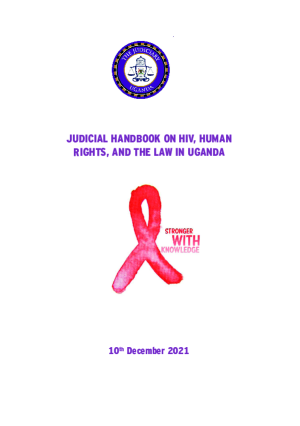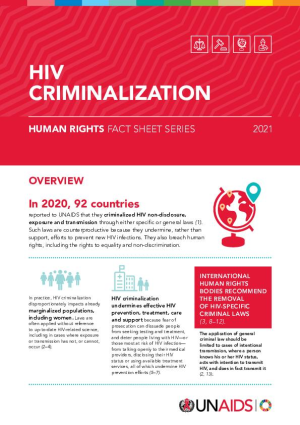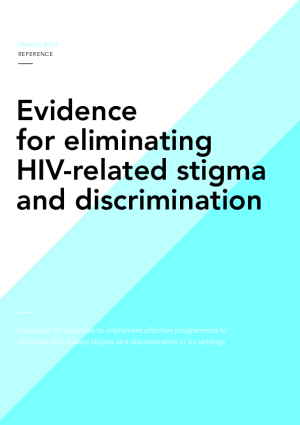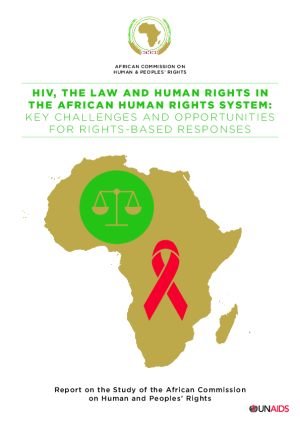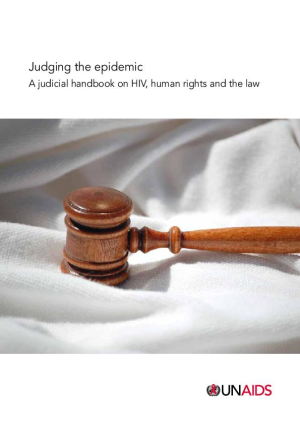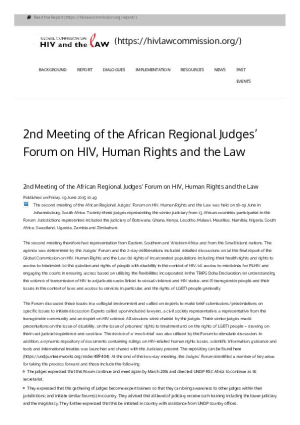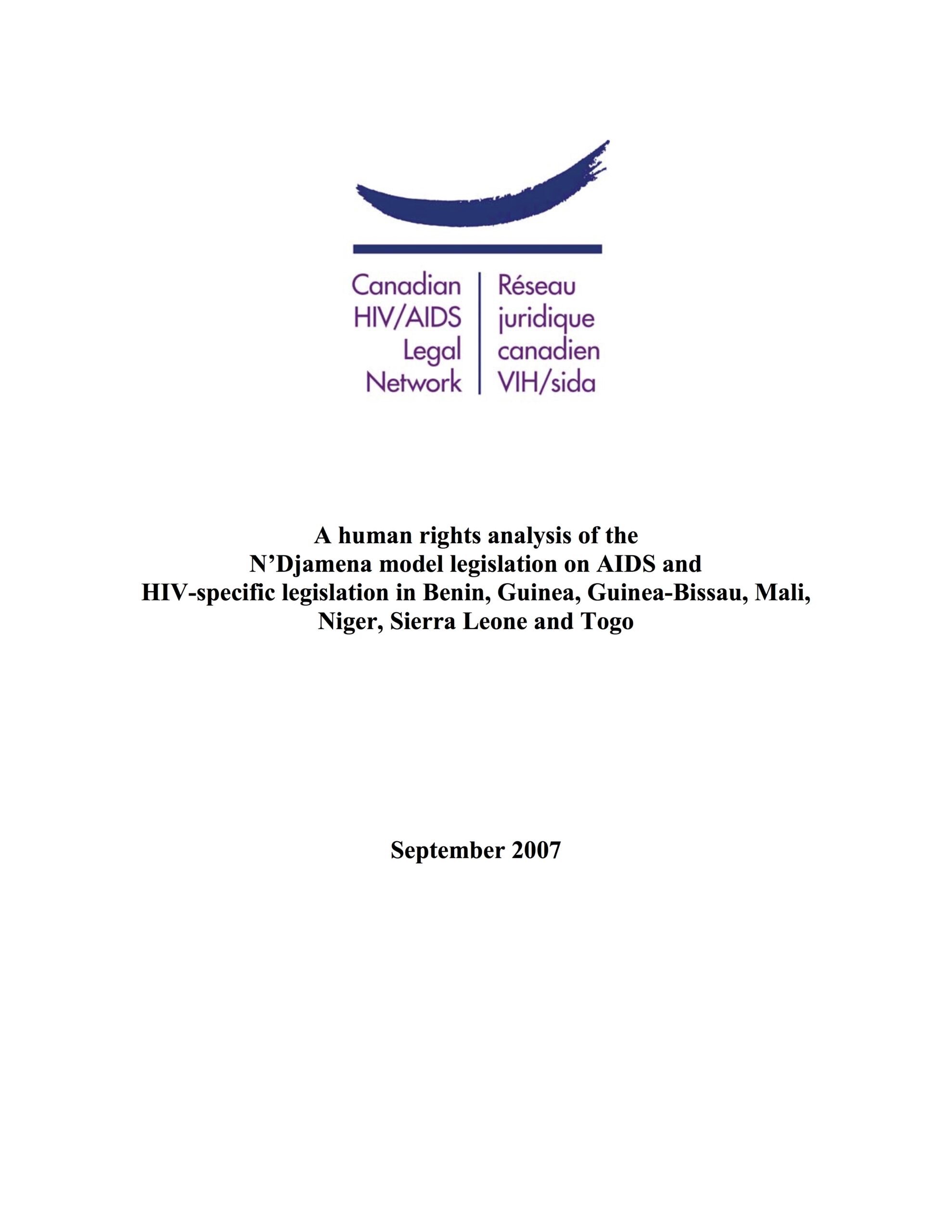Judicial Handbook on HIV, Human Rights and the Law in Uganda
The Judicial Handbook on HIV, Human Rights and the Law in Uganda comprises of five parts that address the issues relating to HIV/AIDS and raises pertinent issues relating to its existence as may affect Judges’ decisions as well as possible recommendations for a start. Specifically, it has a background in which the current status of the HIV/AIDS epidemic and response to it is included.
- Part I enunciates the International Law and Human Rights Frameworks as applicable to HIV/AIDS in Uganda
- Part II concentrates on the National Law and Human Rights Frameworks as applicable to HIV in Uganda.
- Part III is about gaps/issues/shortfalls in national law and human rights frameworks as applicable to HIV and discusses policies on HIV.
- Part IV pertains to criminalization of transmission of HIV and its adverse effects.
- Part V is about things to remember when judging and adjudicating HIV cases, what the disposition of a judicial officer should be as well as the role of a judicial officer in the courtroom whilst handling such cases.
HIV Criminalization – Human Rights Fact sheet Series
Series of fact sheets on human rights highlighting the critical need to scale up action on rights. Short, easy to digest and accessible document outlining the latest epidemiology, the evidence of the impact of human rights interventions, the latest targets, and international guidelines, recommendations and human rights obligations.
Other factsheets in the same series released in June 2021 include: HIV and people who use drugs, HIV and gay men and who have sex with other men, HIV and transgender and other gender-diverse people, HIV and sex work, HIV and people in prisons and other closed settings and HIV and stigma and discrimination.
Reducing Human Rights Related Barriers to HIV & TB Services for Key and Vulnerable Populations: Legal Support Resource
The legal support resource is part of an on -going human rights programme with the goal of reaching key and vulnerable populations by utilising customised and targeted interventions. These interventions include activities on (1) legal empowerment;(2) training of paralegals on issues related to HIV, TB and human rights; (3) legal and paralegal support to community members whose human rights have been violated including pursuing identified matters to court; and (4) sensitisation of judiciary, law makers and traditional leadership especially those involved in traditional courts.
It gives practical information on current and evolving legislation, common law and policies pertaining to HIV and TB in South Africa. The aim is to educate, sensitise and provide updated information to paralegal and legal practitioners alike, who are engaged in offering legal advice and services to individuals and communities who serve members of the vulnerable and key populations.
Evidence for eliminating HIV-related stigma and discrimination – Guidance for countries to implement effective programmes to eliminate HIV-related stigma and discrimination in six settings
This report reviews the latest evidence on what works to reduce HIV-related stigma and discrimination through key programmes to reduce stigma and discrimination and increase access to justice in the six settings of focus for the Global Partnership, including Justice. It includes guidance and recommendations for national governments and key stakeholders to implement programmes to empower populations “being left behind”; remove laws criminalising drug use or possession for personal use, all aspects of sex work, sexual orientation, gender identity, and HIV exposure, non-disclosure and transmission and to routinely review existing laws, regulations and policies relating to HIV.
- Alternative links
- Portuguese, French, Spanish, Russian
HIV, the Law and Human Rights in the African Human Rights System: Key Challenges and Opportunities for Rights-Based Responses
Report on the Study of the African Commission on Human and Peoples’ Rights. The report presents the current state of the HIV epidemic in Africa through a human rights and gender lens by showing the populations and locations most affected by HIV and those underserved by the response to the epidemic. It also describes the global, regional and national norms and standards relating to HIV and health, as well as their interpretation and application by African regional mechanisms, United Nations (UN) bodies and national courts and institutions. It further provides a detailed analysis of the key human rights challenges affecting the response to HIV on the continent.
- Alternative links
- Français
Judging the epidemic: A judicial handbook on HIV, human rights and the law
Prepared as a resource to help judges, magistrates, arbitrators and other judicial officers throughout the world adjudicate cases involving HIV-related issues. Based on international legal and human rights standards, the handbook contains examples of decided cases from different jurisdictions, good-practice advice and judicial rulings on HIV-related issues.
2nd Meeting of the African Regional Judges’ Forum on HIV, Human Rights and the Law, 2015
Describes the second meeting of the African Regional Judges' Forum on HIV, Human Rights and the Law was held in Johannesburg, South Africa.
A human rights analysis of the N’Djamena model legislation on AIDS and HIV-specific legislation in Benin, Guinea, Guinea-Bissau, Mali, Niger, Sierra Leone and Togo.
Detailed information and analyses of HIV-specific legislation in seven Central and West African countries from a human rights perspective. Provides commentary on N’Djamena model legislation on HIV/AIDS (2004).

